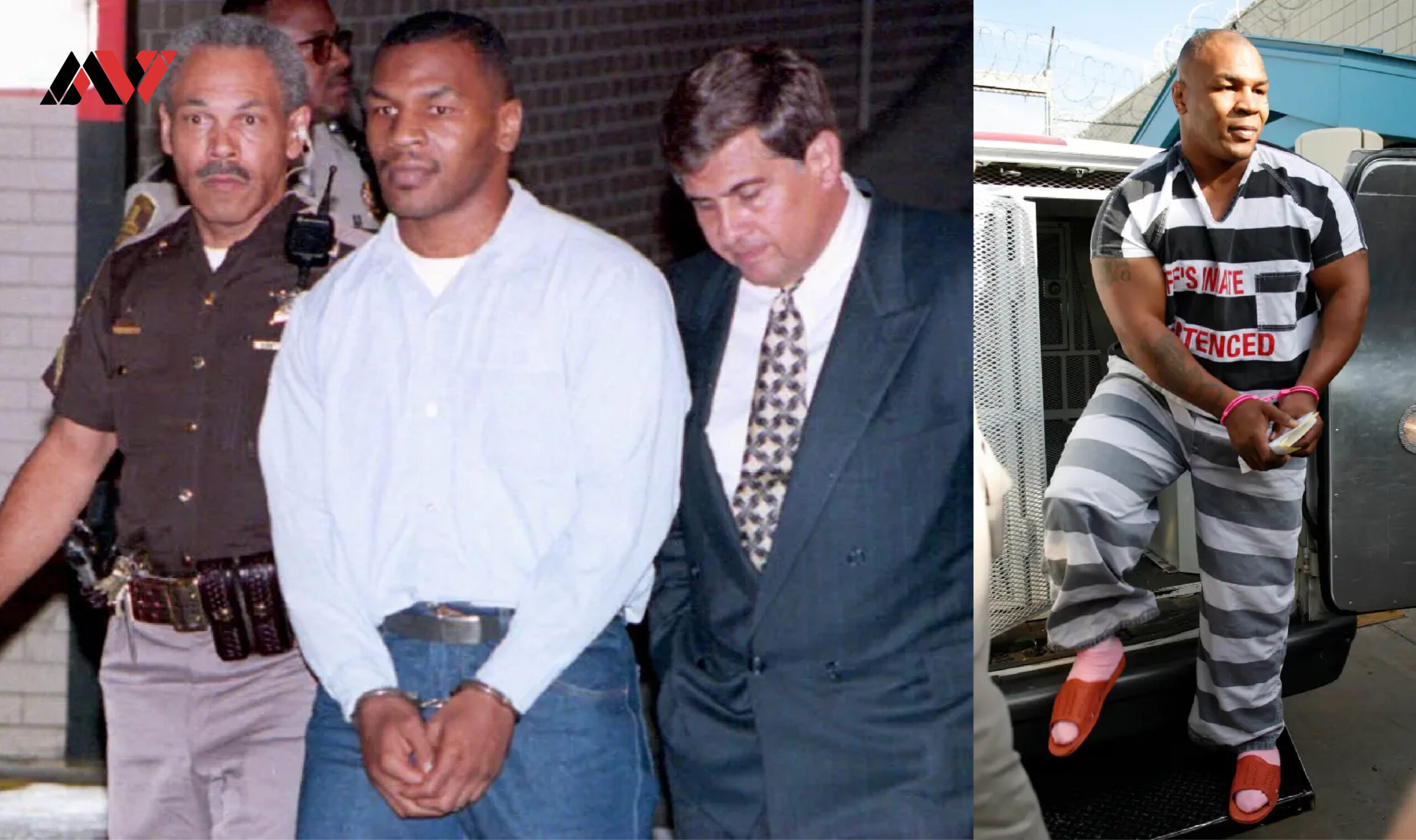Mike Tyson, one of the most recognizable names in the world of boxing, is known for his extraordinary talent, fierce fighting style, and turbulent personal life. Despite his remarkable achievements in the ring, Tyson’s legacy is marred by numerous controversies, the most significant of which led to his incarceration. In 1992, Tyson was convicted of rape, an event that remains a pivotal moment in his life and career. This article will explore the details of why Mike Tyson went to jail, the events leading up to his conviction, and the lasting impact it had on his life.
Mike Tyson’s Rise to Fame
Before delving into the legal issues that landed Mike Tyson in jail, it’s important to understand the context of his fame. Tyson’s rise to stardom was meteoric. Born on June 30, 1966, in Brooklyn, New York, Tyson had a troubled childhood, which included run-ins with the law at a young age. Despite his early challenges, Tyson found his path through boxing. Under the mentorship of legendary trainer Cus D’Amato, he quickly rose to prominence as a heavyweight boxer.
Tyson’s professional career took off in 1985 when he became the youngest heavyweight champion at just 20 years old. His devastating power, aggressive style, and incredible speed made him one of the most feared and admired fighters in the world. However, as his success in the ring grew, his personal life became increasingly chaotic.
The Events Leading Up to Tyson’s Arrest
Tyson’s legal troubles began in 1991 when he was accused of raping Desiree Washington, an 18-year-old Miss Black America contestant. Washington alleged that Tyson raped her in an Indianapolis hotel room on July 19, 1991. Tyson maintained that the encounter was consensual, but Washington’s account of the night led to a highly publicized trial.
The Accusations and Trial
Desiree Washington’s accusations against Tyson were serious, and the case quickly garnered national attention. Washington claimed that after a night out with Tyson, he invited her to his hotel room, where the assault took place. The prosecution argued that Washington had no reason to fabricate the incident, while Tyson’s defense team attempted to discredit her story by suggesting that she had willingly gone to his hotel room and engaged in consensual sexual activity.
Tyson’s defense team also highlighted inconsistencies in Washington’s testimony and questioned her motives, implying that she was seeking fame or financial gain. Despite their efforts, the jury ultimately sided with Washington, and Tyson was convicted of rape on February 10, 1992.
The Conviction and Sentencing
Following his conviction, Tyson faced a maximum sentence of 60 years in prison, as he was convicted on one count of rape and two counts of deviant sexual conduct. However, the judge ultimately sentenced Tyson to six years in prison, with four years of probation. Despite his status as a celebrity and the support of many fans who believed in his innocence, Tyson was ordered to serve time behind bars.
Tyson began his sentence at the Indiana Youth Center (now the Plainfield Correctional Facility) in March 1992. His time in prison marked a significant turning point in his life, both personally and professionally.
Life in Prison: Tyson’s Transformation
While incarcerated, Tyson underwent several personal transformations. He converted to Islam and adopted the name Malik Abdul Aziz, a decision he said helped him find inner peace and spirituality. His time in prison was marked by introspection, and Tyson often spoke of how the experience allowed him to reflect on his turbulent life.
Tyson’s physical condition remained a priority while in prison, as he continued to train and maintain his fitness. However, the experience of being confined and stripped of his freedom profoundly affected him, as he later admitted that prison was a sobering and humiliating experience.
Release from Prison
Tyson was released from prison on March 25, 1995, after serving just under three years of his six-year sentence. His early release was due to good behavior and participation in various rehabilitation programs while incarcerated. Despite his time in prison, Tyson’s return to society was met with widespread attention and anticipation, as many wondered if he would attempt a comeback in the boxing world.
The Impact of Tyson’s Conviction on His Career
Tyson’s imprisonment undoubtedly had a lasting impact on his boxing career. Before his conviction, Tyson was considered one of the greatest heavyweight fighters in history, and many believed he was on his way to becoming the best of all time. However, his time behind bars disrupted his career and changed the trajectory of his life.
Tyson’s Boxing Comeback
Upon his release, Tyson wasted no time in resuming his boxing career. In 1995, just months after leaving prison, he fought Peter McNeeley in a highly anticipated match. Tyson won the fight in the first round, signaling that he still had the power and skill that made him a boxing legend. However, his comeback was met with mixed results. Although he won several high-profile fights, Tyson never fully regained the dominance he once held in the heavyweight division.
Tyson’s post-prison boxing career was also marred by controversy, including the infamous 1997 fight against Evander Holyfield, in which Tyson bit Holyfield’s ear, leading to his disqualification.
Public Perception and Legacy
Tyson’s conviction and imprisonment also had a profound effect on his public image. While many fans remained loyal to him, others viewed him as a convicted rapist whose personal demons overshadowed his athletic achievements. Tyson’s turbulent personal life, including his financial troubles, failed marriages, and erratic behavior, further complicated his public perception.
Despite these challenges, Tyson has made efforts to rebuild his reputation in recent years. His 2008 one-man show, Mike Tyson: Undisputed Truth, and his appearances in popular media, including movies like The Hangover, helped reframe his public image. In recent years, Tyson has spoken openly about his struggles with mental health, addiction, and the mistakes he made throughout his life.
Tyson’s Reflection on His Time in Jail
In interviews and public statements, Tyson has reflected on his time in jail with a mixture of regret and acceptance. He has maintained that he did not commit the crime he was convicted of, but he has also acknowledged the destructive behavior that contributed to his downfall. Tyson has repeatedly expressed a desire to move beyond the mistakes of his past and focus on being a better person, father, and husband.
His journey from the top of the boxing world to the depths of incarceration is a cautionary tale about the dangers of fame, unchecked anger, and poor decision-making. Tyson’s story serves as a reminder that even the most successful individuals can face significant personal challenges that derail their lives.
Conclusion
Mike Tyson’s journey to prison was the result of a series of events that shocked the world. His conviction for rape in 1992 marked a significant low point in a life otherwise filled with extraordinary highs in the boxing ring. The events that led to his incarceration are complex and continue to be a topic of debate among fans and critics alike.




